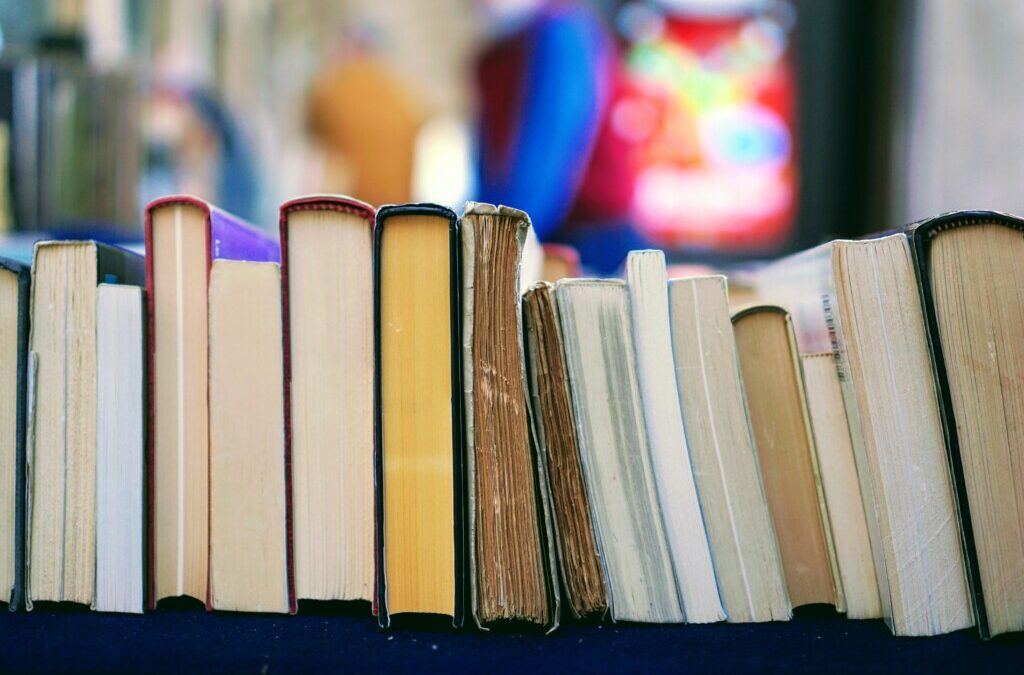What kind of books do you like to read Michelle?
I struggle with this question, not because I don’t know, but it feels hard to answer without sounding pretentious. One answer I’ve given is that I read about women being abused.
And honestly, it’s not an inaccurate description.
But in all seriousness, I read to learn about the world and to challenge my thinking. Most of my reads are literary fiction centered on trauma, pain, control or grief. I’m not opposed to happy books—they just haven’t hit the same. Sue me.
I don’t want to keep repeating, “This one is really heavy and sad.” To get it out of the way, all of these are.
1. I Who Have Never Known Men by Jacqueline Harpmann
This is definitely a very strange read. The premise is that forty women are trapped in bunkers, not knowing how they got there. The main character is a child, the only one without memories of the world before.
Everything changes when the prison chains break and they run away. From there, the book is an exploration from the child’s eyes. What does it mean at its core to be human when all societal structures are stripped away?
It’s worth noting that the author Jacqueline Harpmann is a Holocaust survivor, and the idea of a “bunker” likely stems from this history.
It’s not an exaggeration to say this book changed my life. I wrote about it in my first post calvin.
I related to the main character because I’m constantly questioning the world and obsessively searching for meaning. So many people tell me I think too much. After this book, I questioned this advice for the first time.
Is my emotional intensity actually a problem?
I started to believe that, like the girl in this story, it makes me more resilient and fulfilled. And I don’t need to be ashamed.
I didn’t intend the piece to be about gaslighting. Instead, I wanted to show that I’m a dramatic person, full of big emotions and constant questions—and I won’t apologize because it makes my life better.
The contradiction is that my emotional intensity is also my biggest insecurity.
To highlight the tension, I wrote this piece as a satire to show both the discomfort of my feelings, and the absurdity that I would choose comfort and complacency instead.
The most common response to this book is, “What does this book mean? I’m confused?”
And that’s the point. It stays abstract. Doesn’t explain. Refuses to give a conclusion.
I found that powerful, and I tried to emulate it in my own writing.
Many people frame this as a book about nihilism, but I couldn’t disagree more. More of my thoughts here.
2. My Friends by Hisham Matar
This is the only male-coded book, with a male author. But it’s okay because it’s so gentle and tender.
It follows two Libyan boys stuck in political exile after being shot. What struck me was the depth of the male friendship. That kind of emotional intimacy is important to show.
When it comes to character development, I’m a harsh critic, but nobody does it better than Hisham Mater. More of my thoughts here.
3. Brotherless Night by V. V. Ganeshananthan
This book is highly political and also very personal to me. It centers on the Sri Lankan Civil War, the reason my parents immigrated to America.
It’s ambitious, spanning several decades of war, and at times reads like a history book. The reason it “works” is it refuses to moralize or take sides—just hits you head-on with harsh realities.
I’m biased, but I think this war has relevant contributions to add to our current political discourse. For me, it changed my geopolitical opinions dramatically. In humiliation, I had to admit, my parents were actually right.
Damn, I should’ve listened.
4. The Bluest Eye by Toni Morrison
This book isn’t for the faint of heart, filled with graphic scenes of sexual violence, but it’s such a powerful read.
Toni Morrison is one of the best writers of all time. She shows you the depravity of humanity and won’t let you flinch. Not a word is out of place.
At its core, the book asks, “What does it take to make a girl think that she’s ugly?”
Each chapter follows someone in her community, unraveling how structural violence seeps into everything.
5. The Death of Vivek Oji by Akwaeke Emezi
There are so many amazing Nigerian books, and I attribute this to their beautiful culture and rich storytelling. And this book is one of the best.
It unpacks Vivek Oji’s life, uncovering all secrets—life often misunderstood because he was queer in a culture that outlaws it.
There is pain in this story, but also so much love, especially from a group of women known as the Nigerwives. The last chapter, in particular, made me cry, and is a testament to his life and legacy.
Just FYI — there is uncomfortable incest in the story, but it isn’t romanticized or treated lightly.
Many people complain that books are written for Tiktok and have become shallow, and there’s truth to that. But there are still thought-provoking reads if you’re willing to look.
And I think you should.

Michelle Ferdinands (’22) graduated from Calvin University with degrees in mathematics and computer science. She lives in Kansas City and works as a software engineer. She loves to run and read, and she’s always up for an adventure.



I’ve been meaning to read some of these books and I think you just convinced me to take the leap!